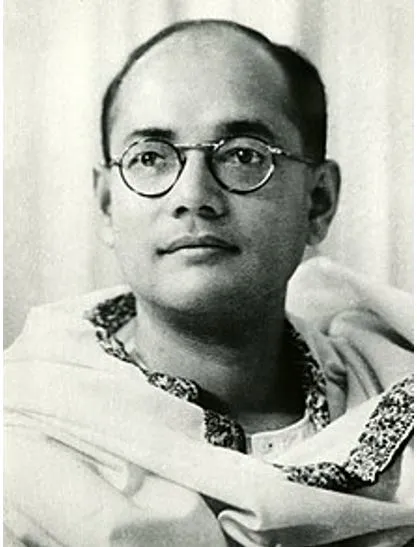

23rd January 2025 (11 Topics)
Context
Every year on January 23, India observes Parakram Diwas to celebrate the birth anniversary of Netaji Subhas Chandra Bose, one of India's most revered freedom fighters.
What is Parakram Diwas?
- The Government of India officially declared January 23 as Parakram Diwas in 2021, marking the 124th birth anniversary of Netaji.
- Parakram Diwas highlights Netaji’s bravery and determination in the face of adversity. It reminds of his leadership in the Indian National Army (INA), where he united Indian soldiers to fight against British rule.
- His role in establishing the Azad Hind Government is also significant as it showed his deep commitment to India’s freedom struggle.
- This day acts as a reminder of how far India has come and what values we should continue to uphold for progress and unity.
Netaji Subhas Chandra Bose (1897-1945)
- Born on January 23, 1897, in Cuttack, Odisha, Bose came from a prominent Bengali family.
- He initially studied in Cuttack, later moving to Scottish Church College and Presidency College in Calcutta.
- During his college days, Bose developed a strong nationalist ideology and got involved in revolutionary activities against British colonial rule.
- Career in Civil Services: In 1921, Bose excelled in the Indian Civil Services (ICS) examination in England. However, his passion for India’s freedom made him resign from this prestigious career and return to India to work for independence.
- In 1921 he resigned from the Indian Civil Service and returned to India.
- Netaji worked under the mentorship of prominent Congress leader Chittaranjan Das who, along with Motilal Nehru, left the Congress Party to form the Swaraj Party in 1922.

- Leadership in Indian National Congress
- In 1923, Bose was elected president of the All India Youth Congress.
- Bose actively participated in the Salt Satyagraha of 1930 and opposed the suspension of the Civil Disobedience Movement, criticizing the Gandhi-Irwin Pact of 1931.
- In 1938 and 1939, he was elected President of the Indian National Congress (INC). During this time, he pushed for more radical action against British rule.
- In 1939, he founded the Forward Bloc, a group within the Congress aiming to strengthen resistance against the British. This marked his shift towards more aggressive nationalism.
- Formation of the Indian National Army (INA)
- During World War II, Bose saw an opportunity to use global tensions to his advantage.
- In 1942, he formed the Indian National Army (INA), consisting of Indian soldiers who were prisoners of war under the British.
- The INA fought alongside Axis powers (mainly Japan) against the British in Southeast Asia. His famous slogan, "Give me blood, and I will give you freedom", inspired millions of Indians to join the struggle for independence.
- The INA's primary objective was to liberate India from British rule by attacking British-occupied territories, including in Burma and India itself.
- Bose’s famous slogans, “Jai Hind” and “Dilli Chalo,” became rallying cries for the INA and the Indian freedom movement.
- On October 21, 1943, Bose declared the formation of the Azad Hind Government in Singapore, with the INA fighting alongside Japanese forces.
More Articles


